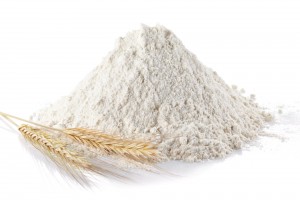
baibaz/Dollar Photo Club
Over the decades one macronutrient or other has gotten beat up: fats, carbs, proteins. Sometimes it’s components within these food groups: eggs, red meat, potato chips, etc…
But rarely do we pay attention to anything beyond the hype. Most of the controversy over foods that have been demonized has been taken out of context. Except potato chips and fast food. They are evil.
But other things, like fats as an entire food nutrient, were completely taken out of context and as a result we lost an entire decade of good fats from our diets. Proteins were heavily promoted with the Atkin’s diet without any discussion about plant versus animal-based proteins. And carbs have always taken a beating, without any real discussion about whole grain versus refined junk.
You can’t go a day without hearing about gluten-this or gluten-free that. I’ve seen products labeled as “gluten-free” that would never have gluten in them anyway, purely for marketing. But this is for good reason because there are clear links between gluten in foods and conditions like migraines, seizures and skin conditions, just to name a few.
Do I think that the whole “gluten-free” craze has been overblown? Yes. Do I think that there is a good sized chunk of the population who should live gluten free? Yes. Do I think that the rest of us should live a gluten-minimal diet? Yes again.
Buried within the research and hype on gluten-free is the fact that we eat processed junk. There is no doubt that enriched wheat flour is very bad for our health and should be avoided. How much of the benefits of going gluten free are actually from avoiding enriched wheat flour?
Let’s face it–most of the carbohydrates we eat today are processed. Much as I’ve tried through diligently scouring the aisles, the mainstream grocery stores do NOT carry whole grain bread loaves. Sure, the label may SAY whole grain, but a quick peak at the ingredients will show you that the whole grains are located somewhere after sodium benzoate on the list. Hamburger and hot dog buns are even worse.
ANY enriched product should be avoided like the plague (which, if you actually survive Yersina pestis your immune system will be stronger for it. Not so with refined carbs…). And, in general, keeping your carb intake lowered is probably a good idea. But the addition of carbs in fruits and vegetables and whole grains is still consistent with a healthy lifestyle.
Which brings us to this particular study. In it, researchers looked at 80 overweight or obese patients with a low intake of fruit and vegetables and sedentary lifestyle (great combination, I might add…can’t imagine how they found any of this type of subject) to see how whole grain intake or refined grain intake impacted a bunch of different markers of health. Here’s what they found after 4-8 weeks of the study:
- There was a 4-fold increase in the blood levels of the polyphenol dihydroferulic acid (aka DHFA-a very potent antioxidant that has been linked to lowered rates of breast cancer).
- There was a 2-fold increase in the related compound ferulic acid (FA) showing up in the stool.
- By 8 weeks, the ferulic acids levels had doubled in the urine.
- After 8 weeks there was a reduction in the high-powered inflammatory molecule tumor necrosis factor-α (TNF-α).
- After 4 weeks there was an increase in the levels of interleukin 10 (IL-10 is a molecule that helps to balance the immune system).
- In the whole grain group, those who had higher levels of fecal FA had higher levels the bacteria families Bacteroidetes and Firmicutes (consistent with healthier outcomes) but reduced levels of the dangerous bacterial family Clostridium.
- In addition, as the TNF-α levels went down there were increased levels of Bacteroides and Lactobacillus.
Anyone who falls into the “grains are evil and cause inflammation and should therefore be banned from the diet” camp would have a hard time arguing that the changes that occurred in this study with whole grain intake were a bad thing.
But again, whole grains should be just a PART of a comprehensive dietary program that is conscientiously chosen to lower your risk of chronic disease and help you live life to the fullest. This means that you have to read the labels and can not rely on the games that the marketing department plays with you on the front of your bag of bread.
